What are high-strength ceramic balls?
High-strength: possess excellent mechanical strength, able to withstand high pressure, impact, and wear. In various harsh working environments, such as high pressure and high-speed fluid erosion, they are less likely to break and deform, maintaining a stable physical state.

Applications of High-Strength Ceramic Balls
Chemical Industry: Used as filler and support for catalysts in chemical reactors to promote uniform reaction; used in chemical reactors to improve gas-liquid distribution and enhance mass transfer efficiency.
Oil Industry: Used as a carrier for catalysts in refining processes to ensure the stability and dispersion of catalysts; plays a key role in hydrogenation, cracking, and other processes in petrochemical industries.
Environmental Protection Field: Used in biological filters for wastewater treatment as a carrier for biological film to improve wastewater treatment efficiency; used as a carrier for adsorbent in air pollution control to enhance adsorption performance.
Metallurgy Industry: Used as thermal insulation material or filler in high-temperature metallurgical furnaces to reduce heat loss and improve uniformity of furnace temperature; used in metal melt filtration to remove impurities and improve metal quality.

Characteristics of High-Strength Ceramic Balls:
- High mechanical strength – able to withstand high pressure and impact force, less prone to breaking and wear.
2.Good chemical stability – have strong resistance to acid, alkali, salt and other chemical substances, less prone to corrosion.
- High temperature resistance – able to maintain stable performance in high temperature environment, less prone to deformation and softening.
Production Process Steps:
- Raw Material Preparation – Select suitable ceramic raw materials, such as aluminum oxide, zirconium oxide, and silicon carbide.
- Shaping – Form the powdered material into the desired shape of the ceramic body using dry or wet forming techniques.
3 .Sintering – Sinter the ceramic body at high temperature to make it dense, thereby improving its mechanical strength and chemical stability.
Compressive strength test:
- Select several representative ceramic ball samples, ensuring that their surfaces have no obvious defects.
- Measure the diameter and height of each ceramic ball using measurement tools and record the results.
- Place the ceramic balls on the working table of the universal material testing machine and adjust the position of the compression head so that it is aligned with the center of the ceramic ball.
- Start the testing machine and apply pressure to the ceramic ball at a certain loading speed until it breaks or reaches the maximum pressure set.
- Record the pressure value at which the ceramic ball breaks, which is the compressive strength.
Technical Parameters of High-Strength Inert Ceramic Balls:
| Crush Strength | ||
| Size | Crush Strength | |
| (kg) | (N/pc) | |
| 1/8″(3mm) | >55 | >0.45 |
| 1/4″(6mm) | >90 | >0.80 |
| 3/8″(10mm) | >125 | >15 |
| 1/2″(13mm) | >215 | >2.2 |
| 3/4″(19mm) | >557 | >4.97 |
| 1″(25mm) | >1050 | >9.5 |
| 1-1/2″ (38mm) | >1500 | >14 |
| 2″(50mm) | >6600 | >66 |



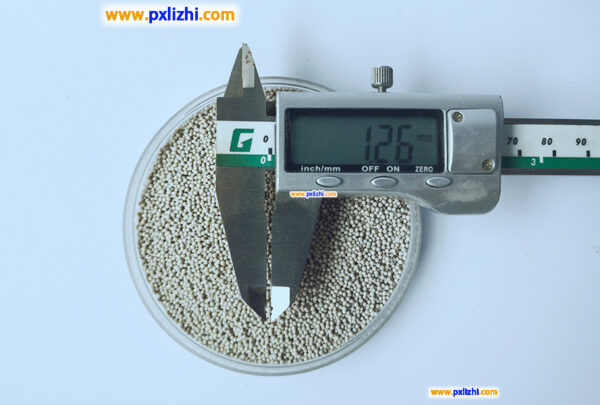
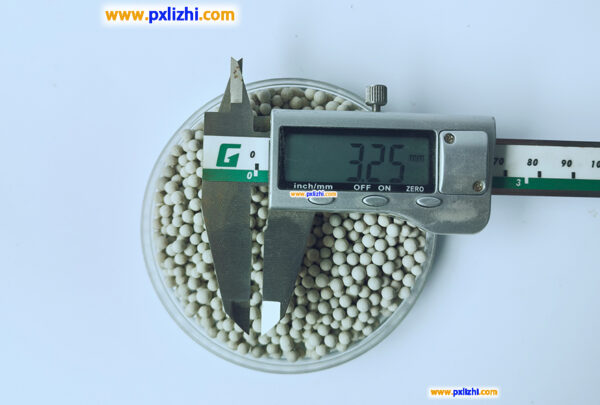
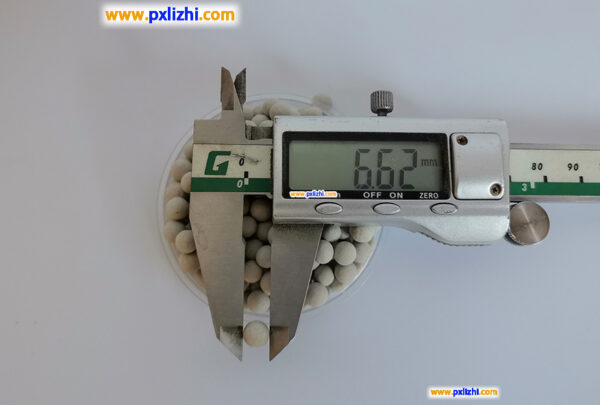
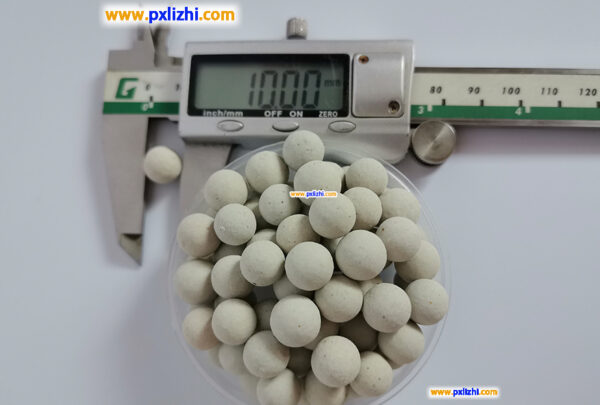
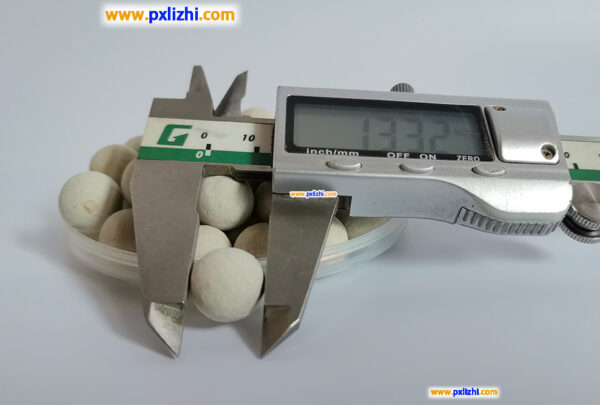
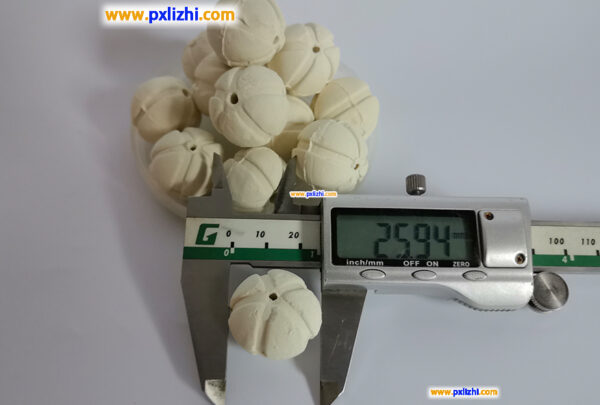
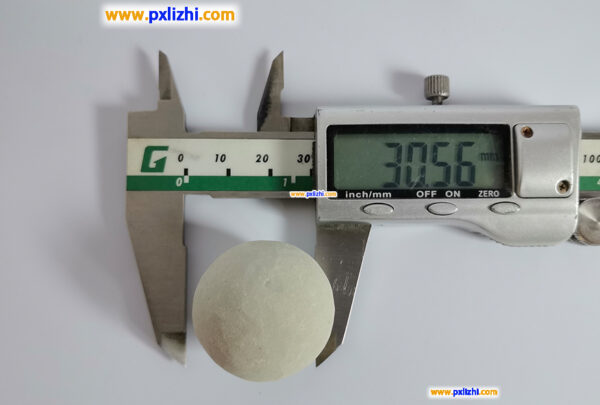
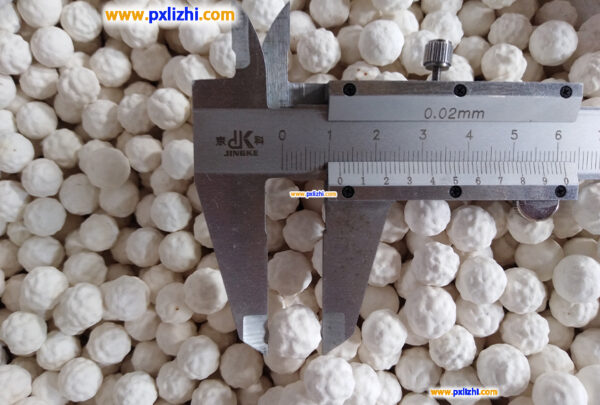
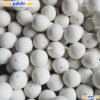
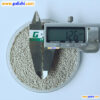
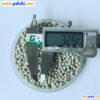
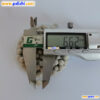

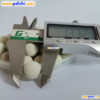
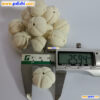
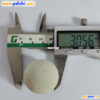
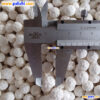
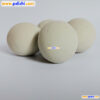
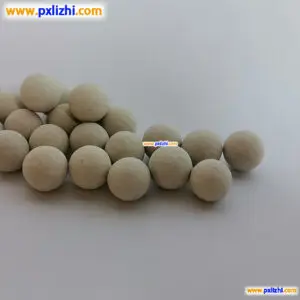
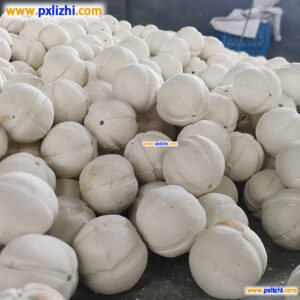
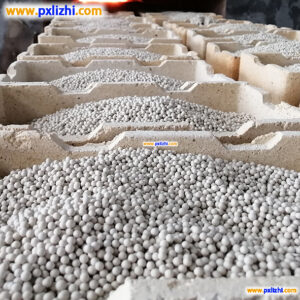

Reviews
There are no reviews yet.